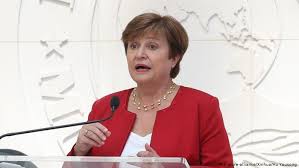The Director-General of the National Information Technology Development Agency (NITDA), Kashifu Inuwa, has restated the need for the Central Bank of Nigeria (CBN) and financial institutions in the country to collaborate with the agency to leverage emerging technologies such as Artificial intelligence (AI) and Data Analytics to deepen digital payment adoption in the country.
Inuwa made this remark during a panel discussion segment at the Central Bank of Nigeria’s 2023 Payments System Management Departmental Retreat programme with the theme “Future of Payments System: Opportunities, Threats and Propositions.”
Represented at the forum by the National Director, National Centre for Artificial Intelligence and Robotics (NCAIR), Engr Ya’u Garba, the NITDA boss pointed out that financial technology (FinTech) had so far shown immense ability in driving Nigeria’s performance in the industry and Environmental, Social, and Governance (ESG), particularly with the application of developmental regulation and enabling policies co-created by the tech ecosystem.
According to him, deepening collaborations with key stakeholders will fast track the achievement of the goal and will not only continue to put Nigeria at the forefront as Fintech-driven economy but will also enhance consumers’ user experience and help move many people out of poverty.
On Nigeria’s efforts toward dealing with the opportunities and threats posed by AI, the industry expert explained that the Federal Government had, following its observation of the trajectory of AI models which have moved from linearly to geometrical in proportions in the past few years, started working on AI policy through the agency which would be soon unveiled to the public.
The NITDA boss clarified: “This AI Policy will form the basis on which all the rules will be highlighted and Agencies like NITDA, which is the implementation arm will be talking about the strategies, framework and guidelines to navigate through its adoption and deployment”.
“Although artificial intelligence is often regarded as a double edged sword, the potential and benefits are tangible but not without a lot of threats, and that is apart from the biases that abound, notwithstanding, our regulatory approach has always been not to stifle innovation”, he added.
Inuwa, who also spoke on other measures being put in place by the government to effectively regulate the industry, said that the policies were start-up ecosystem- friendly.
While stressing the increasing need for measures to be deliberately taken to reap the benefits and forestall the impending threats of AI, Inuwa emphasised that NITDA will be working collaboratively with CBN as with others, in regulating the AI space, stressing that if CBN adopts a particular technology, the potential of such tech to move quickly is high.
The NITDA boss told the audience that the Start-up Bill, which was passed by the National Assembly and assented to by former President Muhammadu Buhari in October 2022, will address almost, if not all, the bottlenecks plaguing the tech ecosystem.
According to him, the Fintech industry is evolving and there are lots to benefit from it by the country if AI is explored and exploited accordingly.
To ensure this, Inuwa harped on the need for government to work with the United Nations, World Bank and other relevant global institutions to help build the infrastructure for FinTech in the country in order to foster digital payments and possibly close the digital gap.
He elaborated: “The Startup Act is deemed to be a positive step forward for the country’s startup ecosystem, and it is expected to have a significant impact on businesses in the technology and innovation space.
“We have other policies tailored towards the bigger picture, like the 3MTT programme by the Federal Ministry of Communications, Innovation & Digital Economy which is expected to generate a pipeline of technical talent in line with President Bola Ahmed Tinubu’s vision of creating 2 million digital jobs by 2025, National Broadband Plan, Digital Identity Policy and the National Financial Policy which drive the financial inclusion in the country,” Inuwa added.
Earlier in his remarks, the Director, Payments System Management Department of the Central Bank of Nigeria (CBN), Musa Jimoh, harped on the need to look into the future and embrace things that are contemporary to Nigeria and the world and ensure that all the thinking behind payments system should be hinged on how it can benefit the common man on the street.
The banker said: “Everything we do in Central Bank of Nigeria, if it cannot benefit the common man on the street, then we have done nothing because the payments system is not for us but for the public good, especially as everybody uses it.
“As such, our thinking should always be what can we do to ease the pain, reduce cost, serve and make things more efficient and available to the common man on the street and indeed to all Nigerians, whether in the country or in the diaspora”, Musa stressed.




